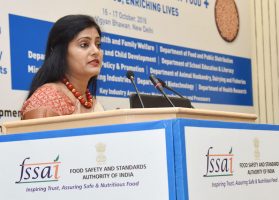
The control of micro nutrient deficiencies is an essential part of the overarching effort of the Government to fight hunger and malnutrition in the country.” This was stated by Smt. Anupriya Patel, Honourable Minister of State for Health and Family Welfare. She was speaking at the inauguration of National Summit on Fortification of Food to address interventions in combating micronutrient malnutrition in the country. Shri Ram Vilas Paswan, Honourable Union Minister of Consumer Affairs, Food and Public Distribution also graced the occasion.
Speaking at the function, Smt Anupriya Patel stated that food fortification is a proven and effective strategy to meet the nutritional needs of a large number of people across various sections of the society, including the poor and underprivileged as well as the vulnerable, such as pregnant women and young children. “Fortification requires neither changes in existing food patterns, habits nor individual compliance. It is socio-culturally acceptable and does not alter the characteristics of the food. It can be introduced quickly and can produce nutritional benefits for populations in a short period of time. It is safe and cost effective, especially if advantage is taken of the existing technology and delivery platforms,” the Minister elaborated.
Emphasizing further on the need for food fortification, Smt. Anupriya Patel said that food fortification reinforces and supports existing nutrition improvement programmes and is part of a broader, integrated approach to prevent micronutrient deficiencies, thereby complementing other approaches to improve health and nutrition.
Smt. Anupriya Patel also released the standards on fortification of foods and launched the food fortification logo at the event.
Speaking on the occasion, Dr. Soumya Swaminathan, Director General, Indian Council for Medical Research (ICMR), said that nutrition is a major determinant of health. She further added that macro and micro nutrients deficiency will lead to risk factors that may cause various diseases like TB, anaemia, etc. She informed that ICMR has planned to conduct health and nutrition survey to get first hand insights about nutritional values of the food consumed by the people of the country. Dr Swaminathan laid stress on the need to raise awareness and educate people about balanced diet.
Food Safety and Standards Authority of India (FSSAI) has formulated a comprehensive regulation on fortification of foods namely ‘Food Safety and Standards (Fortification of Foods) Regulations, 2016’. These regulations set the standards for food fortification and encourage the production, manufacture, distribution, sale and consumption of fortified foods. The regulations also provide for specific role of FSSAI in promotion for food fortification and to make fortification mandatory. This sets the premise for the national summit on fortification of food.
Food Safety and Standards Authority of India (FSSAI) is co-hosting the two day Summit in partnership with related central ministries / departments and development partners. The Summit will bring together experts from the nutrition and development communities as well as representatives from state governments, academics, technical supporters and donors to beneficiaries past and present to discuss and debate – presenting in-depth analysis and impact assessments, important and case study examples of food fortification programs as well as learnings and challenges to build on so effective food fortification efforts can carry on delivering in the future. There will be a number of themes including the roles of industry, government, academia and civil society; improving compliance and measurement; cost-benefit analysis; modelling potential for impact and the required investments.
Also present at the function were members of the food sector fraternity including the science community, industry – big corporates as well as small and medium food businesses represented by their associations, consumer and citizen organizations, international organizations and development partners, experts and government officials from Central ministries and States and other key stakeholders.



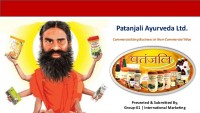
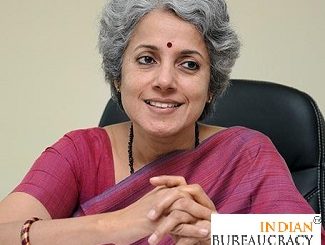
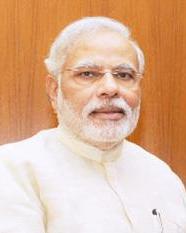
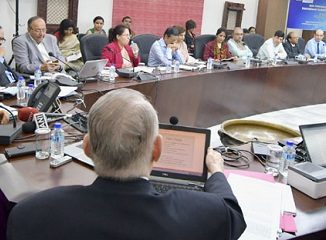
Leave a Reply
You must be logged in to post a comment.